SWEDISH
SOUTH ASIAN STUDIES NETWORK
Newsletter 81:
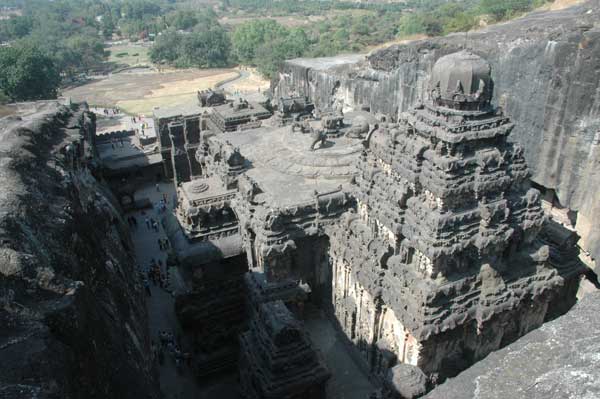 30 January 2008
30 January 2008
| Educational News |
| South Asia related Culture |
| New and updated information |
• All reports from SASNET’s contact journey to India now published
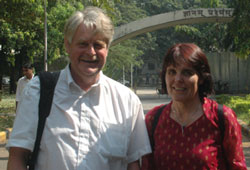 The complete reports from Anna Lindberg’s and Lars Eklund’s November 2007 contact journey to India are now published on SASNET’s web site.
Totally, they visited more than 30 important universities and
research institutions in Northern and Western/Southwestern India.
The ambition was to promote Indo-Swedish researcher cooperation
and student exchange in all fields, from medicine/natural sciences
to social sciences/humanities. A large number of fruitful meetings
were held in all the places visited, including Delhi, Thiruvananthapuram,
Kottayam, Kozhikode, Mumbai, Loni, Pune, Bangalore and Mysore.
In New Delhi, the Swedish Embassy also organised a reception/dinner
for the academic world in honour of the visiting SASNET delegation.
The complete reports from Anna Lindberg’s and Lars Eklund’s November 2007 contact journey to India are now published on SASNET’s web site.
Totally, they visited more than 30 important universities and
research institutions in Northern and Western/Southwestern India.
The ambition was to promote Indo-Swedish researcher cooperation
and student exchange in all fields, from medicine/natural sciences
to social sciences/humanities. A large number of fruitful meetings
were held in all the places visited, including Delhi, Thiruvananthapuram,
Kottayam, Kozhikode, Mumbai, Loni, Pune, Bangalore and Mysore.
In New Delhi, the Swedish Embassy also organised a reception/dinner
for the academic world in honour of the visiting SASNET delegation.
On Saturday 3 November 2007, a seminar meeting
was organised in New Delhi for SASNET’s South Asian Reference
group, consisting of a number of senior researchers from the
region,
who closely observe SASNET’s activities and give constructive
suggestions to the root node.
– Read
the short summary travel report
– Read the more detailed travel report, with links to 33 special reports from each and every institution visited by SASNET’s Director and Deputy Director.
– Read the report from SASNET’s South Asian Reference Group meeting
• Uppsala research conference on Nature, Knowledge, Power
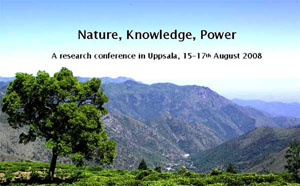 A research conference titled ”Nature, Knowledge, Power”, aiming at bringing together researchers from different academic fields, concerned with questions of environment and society under present and historical conditions, will be held in Uppsala 15–17 August 2008. The conference is
co-organised by SASNET, the Dept. for Rural and Urban Development at the Swedish University for Agricultural Sciences (SLU), and Uppsala Centre for Sustainable Development (CSD). The themes for the sessions are: – Energy: renewable and sustainable?; Competing rights, codifying law; – Community rights under neoliberal rule; – Who needs conservation? Nature, people, survival ; – Contested urban environments; and – Ideologies of environmental change: from imperial modernization to postcolonial social equality? Deadline for applications to the conference is 31 March 2008. More information.
A research conference titled ”Nature, Knowledge, Power”, aiming at bringing together researchers from different academic fields, concerned with questions of environment and society under present and historical conditions, will be held in Uppsala 15–17 August 2008. The conference is
co-organised by SASNET, the Dept. for Rural and Urban Development at the Swedish University for Agricultural Sciences (SLU), and Uppsala Centre for Sustainable Development (CSD). The themes for the sessions are: – Energy: renewable and sustainable?; Competing rights, codifying law; – Community rights under neoliberal rule; – Who needs conservation? Nature, people, survival ; – Contested urban environments; and – Ideologies of environmental change: from imperial modernization to postcolonial social equality? Deadline for applications to the conference is 31 March 2008. More information.
• Karl Reinhold Haellquist’s books collection to be catalogued
In
2004 a unique collection of more than 6000 South Asia related
books, journals, videotapes and pamphlets on various aspects
of South Asian studies was donated to SASNET. The
books come from the private library of the
renowned Swedish scholar Karl Reinhold Haellquist who passed
away in 2000, and were later given by his wife Inger Sondén-Haellquist.
Karl Reinhold was a historian specialised on South Asia, and
worked for many years at the Nordic Institute of Asian Studies
(NIAS) in Copenhagen. The donated books were supposed to form
a Memorial Collection at Lund University’s
Asian Library,
but due to lack of funding this has not materialised so far.
However, in June 2007 the
Crafoord Foundation decided to give SEK 120 000 as a grant to
SASNET in order to digitalize Karl Reinhold Haellquist’s
private archive – part of the collection. And in August 2007, the SASNET board decided to set aside SEK 150 000 from its budget for 2007 to go ahead with the cataloguing of the books. In January 2008 this work was launched by the librarian Erik Svanström, hired from the Asia Library. Parts of the Haellquist collection are now going to be put on display in shelves in localities adjacent to the SASNET root node office in Lund, open Monday-Friday 9–17 (at Scheelevägen 15 D, first floor). More information on the Karl Reinhold Haellquist books donation
• More information about SASNET and its
activities
See SASNET’s page, http://www.sasnet.lu.se/sasnet.html
• South Asia included in Erasmus Mundus External Window programmes from 2008
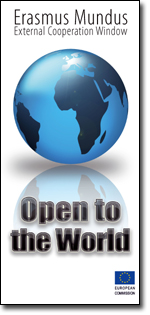 Since 2004, the European Commission (EC) has run the successful Erasmus Mundus Programme, a flagship programme aimed at promoting the attractiveness of the European Higher Education system and third country cooperation and partnerships (more information about the programme).
In addition to this, the EC in 2007 introduced an additional mobility scheme titled Erasmus Mundus External Cooperation Window (EMECW), designed to foster co-operation between higher education
institutions and the exchange of students, researchers and academic staff from EU Member States
and targeted so-called Third-countries. It complements current and previous schemes such as Tempus, ALFA, AsiaLink, Alban, Edulink, Erasmus, and the general Erasmus Mundus, providing funds for the organisation and implementation of student – from undergraduate to post-doctorate level – and academic staff mobility flows.
Since 2004, the European Commission (EC) has run the successful Erasmus Mundus Programme, a flagship programme aimed at promoting the attractiveness of the European Higher Education system and third country cooperation and partnerships (more information about the programme).
In addition to this, the EC in 2007 introduced an additional mobility scheme titled Erasmus Mundus External Cooperation Window (EMECW), designed to foster co-operation between higher education
institutions and the exchange of students, researchers and academic staff from EU Member States
and targeted so-called Third-countries. It complements current and previous schemes such as Tempus, ALFA, AsiaLink, Alban, Edulink, Erasmus, and the general Erasmus Mundus, providing funds for the organisation and implementation of student – from undergraduate to post-doctorate level – and academic staff mobility flows.
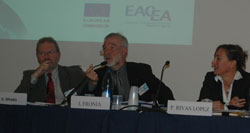 In December 2007, a new call for proposals regarding mobility activities starting in the academic year 2008–2009 was presented at a meeting organised by EU’s Education, Audiovisual and Culture Executive Agency in Brussels (photo from the meeting).
In December 2007, a new call for proposals regarding mobility activities starting in the academic year 2008–2009 was presented at a meeting organised by EU’s Education, Audiovisual and Culture Executive Agency in Brussels (photo from the meeting).
A separate lot (nr 15) has now been designed to promote academic collaboration between EU and India. It will involve 20 partner universities in Europe and India, and have a flow of 320 fully funded students/researchers/academic staff. Two other lots specifically involving South Asian countries have also been designed. The Third-countries in lot 12 should be Afghanistan, Bhutan, Nepal, Pakistan plus another optional country (that could be India or Sri Lanka), and with a mobility flow of 295 people.
Lot 13 includes Bangladesh and Maldives plus Cambodia, Myanmar and an optional country (that similarly could be India or Sri Lanka), and has a mobility flow of 230 people. Also in lot 14 – involving Mongolia, Vietnam and Laos – it will be possible to include partner universities in India or Sri Lanka as an optional country.
The main applicant for the EMECW programme should be a university from within the European Union. Deadline for submission of applications is Friday 15 February 2008. The mobility flow should start from the academic year 2008-09, and be fully running before 1 April 2009. The scheme could run for three years, but a reapplication has to be made also by successful applicants every year.
Full information about the EMECW programme, including the Call for proposals 2007.
• Announcement for Senior Research Fellow at Norwegian Institute of International Affairs
The Norwegian Institute of International Affairs (NUPI) in Oslo announces a position as Senior Research Fellow at its Department of Development Studies. NUPI is one of
Norway’s leading research institutions in the area of International
Studies. The Dept. of Development Studies
currently consists of six researchers and two student fellows. Research
in the section is mainly focused on the following three interrelated themes: • Development aid, aid policies and the politics of aid; • Governance and state–society relations; and • Security and development. Application deadline is Friday 8 February 2008.
• More information about South Asia related
research at Swedish and Nordic universities
See SASNET’s page, http://www.sasnet.lu.se/research.html
• UNICEF India Country Office invites applications for Internship programme
![]() UNICEF India Country Office invites applications for a full-time India Internship programme from 28 May to 5 August 2008. Conceived
as part of a broader initiative to build a Knowledge Community on Children in India (KCCI), UNICEF India is partnering with research
and academic institutions to encourage young students and scholars from around the world in engaging in development issues pertaining
to India’s children and women.
The internship offers an opportunity for research and field work on issues related to child rights in India across a variety of areas: child
protection, health, nutrition, education, HIV/AIDS, and water and sanitation.
UNICEF India Country Office invites applications for a full-time India Internship programme from 28 May to 5 August 2008. Conceived
as part of a broader initiative to build a Knowledge Community on Children in India (KCCI), UNICEF India is partnering with research
and academic institutions to encourage young students and scholars from around the world in engaging in development issues pertaining
to India’s children and women.
The internship offers an opportunity for research and field work on issues related to child rights in India across a variety of areas: child
protection, health, nutrition, education, HIV/AIDS, and water and sanitation.
The assignment will involve a combination of desk and field
work at the district or village level, with interns being grouped into teams that are based in state capitals and work under the supervision of
selected research institutions/non-governmental organisations.
Applicants should be enrolled in a Masters level graduate programme or a higher degree program, in one of the following disciplines:
anthropology, child psychology, demography, economics, education, engineering, human rights, international development, journalism,
legal studies, public health, sociology, statistics, rural development, social work, or any other relevant area.
Those who have completed
their Masters level graduate programmes in 2007 are also eligible to apply.
Selected interns will be placed in research institutions across states where UNICEF has a presence. Possible locations include Hyderabad
(Andhra Pradesh), Patna (Bihar), Ranchi (Jharkand), Gandhinagar (Gujarat), Bhopal (Madhya Pradesh), Mumbai (Maharashtra),
Bhubhaneswar (Orissa), Chennai (Tamil Nadu), Kolkata (West Bengal), Jaipur (Rajasthan), Lucknow (Uttar Pradesh) and New Delhi. Deadline for applications is 31 January 2008. More information.
• Heidelberg offers Masters Degree programme in Health and Society in South Asia
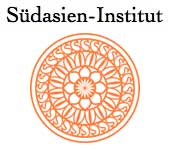 From April 2008, the South Asia Institute (SAI), University of Heidelberg, Germany, will start a two-year interdisciplinary Masters Degree programme in Health and Society in South Asia. It will be an English-medium degree with a focus on Medical Anthropology and South Asian Studies. Particular attention will be given to the importance of cultural and historical factors in the areas of health, wellbeing, and illness. The target groups for this programme include professionals already working, or wishing to work, in health-related fields in South Asia; and students wishing to pursue an academic career in anthropology or one of the neighbouring social sciences. Current research at SAI focuses on indigenous medical systems of South Asia (e.g. Ayurveda, Tibetan Medicine, and Folk Medicine), ritual healing, health and environment, health and ethics, pharmaceuticals and culture, and public health. Deadline for applications has been extended to 1 February 2008. More information.
From April 2008, the South Asia Institute (SAI), University of Heidelberg, Germany, will start a two-year interdisciplinary Masters Degree programme in Health and Society in South Asia. It will be an English-medium degree with a focus on Medical Anthropology and South Asian Studies. Particular attention will be given to the importance of cultural and historical factors in the areas of health, wellbeing, and illness. The target groups for this programme include professionals already working, or wishing to work, in health-related fields in South Asia; and students wishing to pursue an academic career in anthropology or one of the neighbouring social sciences. Current research at SAI focuses on indigenous medical systems of South Asia (e.g. Ayurveda, Tibetan Medicine, and Folk Medicine), ritual healing, health and environment, health and ethics, pharmaceuticals and culture, and public health. Deadline for applications has been extended to 1 February 2008. More information.
• Devastating criticism against the state of Pakistani universities
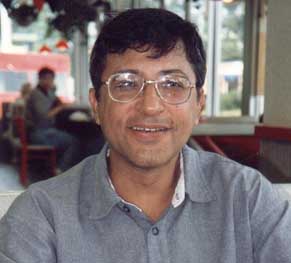 Prof. Pervez Hoodbhoy, chairman of the Dept. of Physics at Quaid-e-Azam University in Islamabad, Pakistan, has again published an article full of criticism against the Pakistani government’s talk about successes in science and research. In the article, ”Pakistan's Universities: Problems and Solutions”, published 28 January 2008, Prof. Hoodbhoy claims that the standard of Pakistani students is miserable, and that the ongoing scheme to set up nine Pak-European universities in the country (including the KTH University in Sialkot) is turning into a stunning disaster. He also points out which reforms, in his view, that ought to be carried out to really improve the Pakistani universities. Read the article.
Prof. Pervez Hoodbhoy, chairman of the Dept. of Physics at Quaid-e-Azam University in Islamabad, Pakistan, has again published an article full of criticism against the Pakistani government’s talk about successes in science and research. In the article, ”Pakistan's Universities: Problems and Solutions”, published 28 January 2008, Prof. Hoodbhoy claims that the standard of Pakistani students is miserable, and that the ongoing scheme to set up nine Pak-European universities in the country (including the KTH University in Sialkot) is turning into a stunning disaster. He also points out which reforms, in his view, that ought to be carried out to really improve the Pakistani universities. Read the article.
• Time to apply for Nordic Centre in India summer course on Contemporary India
 For the sixth time the course
'Contemporary India' will be held in the Summer 2008 at the
University of Hyderabad, in collaboration with the
Nordic Centre in India. The course, running for four weeks in July
2008, is tailor-made for Nordic students and introduces issues
of politics, culture and economy. It consists of the following
five parts: • Introductory course: The diversity of
India:
• The political system and questions of identity: •
Globalisation and the economy focusing on the city of Hyderabad:
• Development, environment and human rights: and • Indian
literature and cinema. The students coming from most Nordic
countries (and universities that are members of the Nordic
Centre in India) are given board and lodging in an excellent
guest house. Apply directly to NCI before
1 April 2008. Each member university can nominate 3 candidates
and 3 reserves on this course. More
information.
For the sixth time the course
'Contemporary India' will be held in the Summer 2008 at the
University of Hyderabad, in collaboration with the
Nordic Centre in India. The course, running for four weeks in July
2008, is tailor-made for Nordic students and introduces issues
of politics, culture and economy. It consists of the following
five parts: • Introductory course: The diversity of
India:
• The political system and questions of identity: •
Globalisation and the economy focusing on the city of Hyderabad:
• Development, environment and human rights: and • Indian
literature and cinema. The students coming from most Nordic
countries (and universities that are members of the Nordic
Centre in India) are given board and lodging in an excellent
guest house. Apply directly to NCI before
1 April 2008. Each member university can nominate 3 candidates
and 3 reserves on this course. More
information.
• NCI course in Bangalore on environmental issues in India
For the second year, NCI offers a course on environmental issues in India, in Bangalore during the Summer 2008. The course titled “Approaching
the Environment in India. New theories and methods in the study of the nature-society interface”, is organised in collaboration
with the Institute for Social and Economic Change (ISEC)
in Bangalore. It is a four-weeks multi-disciplinary course for graduate and post-graduate
students from the Nordic countries, that seeks to introduce
students to recent theories and methods in the study of contemporary
environmental issues in India. Apply directly to NCI before
1 April 2008. Each member university can nominate 3 candidates
and 3 reserves on this course. More
information.
• NCI course in Mumbai on Demography,
Gender and Reproductive Health
For the second year, NCI also invites applications
for a a five week intensive course in Mumbai on “Demography,
Gender and Reproductive Health”, in the Summer 2008. It is an an introduction to population studies
in India, organised in collaboration with the International Institute for Population
Science (IIPS) in Mumbai in collaboration with NCI. The course
is a multi-disciplinary course that is open for under-graduate
and graduate students from the Nordic countries. Apply directly
to NCI before 1 April 2008. Each member
university can nominate 3 candidates and 3 reserves on this
course. More
information
• Sanskrit and Nepali summer intensive language courses offered in Kathmandu
 The Centre for Buddhist Studies at Rangjung Yeshe Institute, Kathmandu University in Nepal is now accepting
applications for its
Tibetan, Sanskrit and Nepali summer intensive language courses offered in
2008. This
summer, the language programs have been expanded to include three levels
of colloquial
Tibetan (beginning, intermediate, and advanced), and two Sanskrit courses
(beginning and
Sanskrit Buddhist readings). The courses, which are structured as a full immersion into the local
languages and
cultures, include the opportunity to live with Tibetan and Nepali
families. All classes
are held at Ka-Nying Shedrub Ling Monastery, just a few minutes walk from
the Great Stupa
of Boudhanath in the Kathmandu Valley. More information.
The Centre for Buddhist Studies at Rangjung Yeshe Institute, Kathmandu University in Nepal is now accepting
applications for its
Tibetan, Sanskrit and Nepali summer intensive language courses offered in
2008. This
summer, the language programs have been expanded to include three levels
of colloquial
Tibetan (beginning, intermediate, and advanced), and two Sanskrit courses
(beginning and
Sanskrit Buddhist readings). The courses, which are structured as a full immersion into the local
languages and
cultures, include the opportunity to live with Tibetan and Nepali
families. All classes
are held at Ka-Nying Shedrub Ling Monastery, just a few minutes walk from
the Great Stupa
of Boudhanath in the Kathmandu Valley. More information.
• More information about South Asia related
education at Swedish and Nordic universities
See SASNET’s page, http://www.sasnet.lu.se/education.html
• Fourth International Seminar on Vernacular Settlements
in Ahmedabad
The Fourth International Seminar on Vernacular Settlements
will be held in Ahmedabad, India, 14–17 February 2008. It
will be hosted by the School of Architecture at CEPT
University (Centre for Environmental Planning
and Technology) in Navrangpura, Ahmedabad. The theme of
the seminar is "Vernacular
Settlements and Architecture in Transition". Keynote
Speakers will be Prof. Balkrishna Doshi, a Fellow of the
Royal Institute of British Architects and a Fellow of the Indian
Institute of Architects; and Dr Hasan-Uddin
Khan, Professor of Architecture
and Historic Preservation at Roger Williams University and Visiting
Professor of Architecture at the Massachusetts Institute of Technology,
USA. More
information.
• Dubai Conference on Inter-Asian Connections
An International Conference on Inter-Asian Connections will be held in Dubai, the United Arab Emirates, 21–24
February 2008. A call for papers with the deadline 14 September 2007, has been issued by the American Social Science Research Council (SSRC) that organises the conference. Researchers
in any world region are welcome to participate in the 4-day thematic workshop. The conference will host
concurrent workshops showcasing innovative research from across the
social sciences and related disciplines, on themes of particular
relevance to Asia, reconceptualized as a dynamic and interconnected
historical, geographical, and cultural formation stretching from the
Middle East through Eurasia and South Asia, to East Asia. More information.
• 11th Asian Congress of Agricultural Medicine
and Rural Health in Aurangabad
The 11th Asian Congress of Agricultural Medicine
and Rural Health will be held in Aurangabad, India, 22–24
February 2008.
The theme for the 2008 conference will be ”Integrated
Approach For Achieving Millennium Development Goals in Asia”,
and it is being organised by the Association of Agricultural Medicine
and Rural Health in India, the Pravara
Medical Trust, and Pravara Rural University, all based in Loni,
Ahmednagar District in the State of Maharashtra (in collaboration
with the International Association
of Agricultural Medicine and Rural Health, IAAMRH). Besides addressing key issues
related to the theme of the conference, the aim is to promote dialogue
amongst rural health workers, government, NGOs, UN agencies, national
international funding agencies and other stakeholders for finding
solutions on health issues. The conference will also highlight
and foster opportunities for innovative, comprehensive, participatory
rural health models that can be replicated. Venue: Dr. Babasaheb
Ambedkar Marathwada University, Aurangabad. More
information.
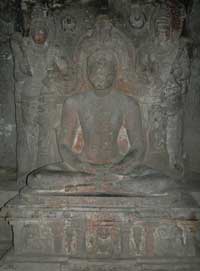 • 10th Jaina Studies Workshop to be held at SOAS in London
• 10th Jaina Studies Workshop to be held at SOAS in London
The 10th Jaina Studies Workshop will be held at the School of Oriental and African Studies (SOAS) in London, UK, 6–7 March 2008. The theme for the 2008 workshop will be ”Jaina Art & Architecture”. The Annual Jain Lecture will be presented by Maruti Nandan P. Tiwari from Banaras Hindu University (BHU), Varanasi, India. He will speak about ”New Approach to the Study of Jaina Art and Architecture”. The conference is co-organised and co-sponsored by the Centre of Jaina
Studies at SOAS (Dr. Peter Flügel), the Centre for Theology and Religious Studies at the
University of Lund (Prof. Olle Qvarnström) and the Victoria and Albert Museum in London (Dr. Nicholas Barnard) . Venue: Brunei Gallery Lecture Theatre, SOAS, Russell Square, London. More information.
• London conference on European Development Aid and NGOs
An international conference on “European Development Aid and NGOs: Changing Notions of Civil Society in "North" and "South" will be held in London, UK, 12–14 March 2008. The conference is a joint cooperation between the London Scholl of Economics (LSE) Centre for Civil Society and the CINEFOGO Network of Excellence under the 6th EU Framework Programme. The aim is to investigate the changing approaches of European development aid towards European and Southern NGOs and the effects of these on the participation and well-being of poor and marginalised groups in developing countries. The conference reflects critically on the ways in which the concept of civil society is conceptualised in the `North’ and `South’, the strategies of support for civil society used by European donors, on the relationships between NGOs and other groups within civil society, and the changing power relations between European and Southern NGOs in the so-called North and South. Deadline for submission of abstracts: 15th September 2007. Venue: Goodenough College, London WC1. More information.
• British South Asian Studies in the North Network holds its fourth yearly symposium
The British South Asian Studies in the North Network (SASIN) holds its fourth yearly symposium on the theme ”Counter-mapping the self: agency and history in South Asia”, in Lancaster, UK, on Friday 14 March 2008, 09.30–18.00. The one-day symposium, organised by Lancaster University, considers anthropological, religious and political approaches to history, agency and selfhood in South Asia. It seeks to decentre prevalent understanding of 'South Asian' personhood by exploring how the idea of the self straddles the individual and the collective. Venue: Lecture Theatre 9 and B108, Management School, Lancaster University. More information.
• 24 panels accepted for 22ns BASAS conference in Leicester
 The British Association for South Asian Studies (BASAS) holds its 22nd annual conference & AGM on 26–28 March 2008 at the University of Leicester, UK. A total number of 24 panels have been accepted for the 2008 conference, among them interesting panels on •”Transnational nationalism and the borders of race: Afro-Indian encounters in the twentieth century” (convened by Sana Aiyar and Nico Slate, Harvard University, USA); •”Integrated histories of the Andaman Islands” (convened by Clare Anderson, University of Warwick, UK); •”War and peace, boom and bust, hypocrisy and democracy? A comparative analysis of Pakistan and India in the 21st century” (convened by Jyoti Saraswati, Queen Elizabeth House, Oxford, UK, and Taimur Rehman, SOAS, London, UK); and •”Sites of infection, sites of epidemiological enquiry” (convened by Nandini Bhattacharyya, UCL and Warwick, UK and Sanchari Dutta, Oxford, UK). Each year, BASAS also awards a prize for the most outstanding paper given by a student at the annual conference. Both the paper and its presentation form part of the judging criteria. The paper may be on any subject relevant to the conference. More information about the 2008 BASAS conference.
The British Association for South Asian Studies (BASAS) holds its 22nd annual conference & AGM on 26–28 March 2008 at the University of Leicester, UK. A total number of 24 panels have been accepted for the 2008 conference, among them interesting panels on •”Transnational nationalism and the borders of race: Afro-Indian encounters in the twentieth century” (convened by Sana Aiyar and Nico Slate, Harvard University, USA); •”Integrated histories of the Andaman Islands” (convened by Clare Anderson, University of Warwick, UK); •”War and peace, boom and bust, hypocrisy and democracy? A comparative analysis of Pakistan and India in the 21st century” (convened by Jyoti Saraswati, Queen Elizabeth House, Oxford, UK, and Taimur Rehman, SOAS, London, UK); and •”Sites of infection, sites of epidemiological enquiry” (convened by Nandini Bhattacharyya, UCL and Warwick, UK and Sanchari Dutta, Oxford, UK). Each year, BASAS also awards a prize for the most outstanding paper given by a student at the annual conference. Both the paper and its presentation form part of the judging criteria. The paper may be on any subject relevant to the conference. More information about the 2008 BASAS conference.
• PhD Course on ”Business and Global Governance for Sustainable Development in Oslo
 A PhD Course on ”Business and Global Governance for Sustainable Development” will be held in Oslo, 14–16 April 2008. The course is organised by the Centre for Development and Environment (SUM) at the University of Oslo. This intensive three-day course has the primary objectives to provide students with an intensive but thorough introduction
to the different theoretical perspectives on the role and influence of
business on global governance; to provide students with a critical review of how business
influences the policies of particular international institutions and
agreements; and • to allow students to present their own research and
receive feedback from other students and lecturers. Among the lecturers are Dr. Robert Falkner, Lecturer in International Relations at the London
School of Economics (LSE); Dr. Peter Newell, Professor of Development Studies at the University of
East Anglia; and Christopher Wright, LSE/Alcoa Fellow 2007-09 and a Visiting Researcher
at SUM. Participants will be accommodated in Oslo. The cost of room and board for
three days will be fully covered by SUM. Application deadline is February 15, 2008. More information.
A PhD Course on ”Business and Global Governance for Sustainable Development” will be held in Oslo, 14–16 April 2008. The course is organised by the Centre for Development and Environment (SUM) at the University of Oslo. This intensive three-day course has the primary objectives to provide students with an intensive but thorough introduction
to the different theoretical perspectives on the role and influence of
business on global governance; to provide students with a critical review of how business
influences the policies of particular international institutions and
agreements; and • to allow students to present their own research and
receive feedback from other students and lecturers. Among the lecturers are Dr. Robert Falkner, Lecturer in International Relations at the London
School of Economics (LSE); Dr. Peter Newell, Professor of Development Studies at the University of
East Anglia; and Christopher Wright, LSE/Alcoa Fellow 2007-09 and a Visiting Researcher
at SUM. Participants will be accommodated in Oslo. The cost of room and board for
three days will be fully covered by SUM. Application deadline is February 15, 2008. More information.
• Delhi conference on New Cultures of Intimacy and Togetherness in Asia
An International conference on ”New Cultures of Intimacy and Togetherness in Asia” will be held in New Delhi, India, 9–10 May
2008.
The conference seeks to bring together scholars working across areas such as sociology, gender studies, film/media studies, anthropology, popular culture, and urban studies in order to explore emerging cultures of intimacy and friendship in contemporary non-Western contexts. It is jointly organised by Brinda Bose from Nehru Memorial Museum and Library in New Delhi; and
Sanjay Srivastava from the Deakin University in Melbourne, Australia. More information.
• 25th annual meeting of the Sanskrit Tradition in the Modern World seminar in Manchester
The 25th annual meeting of the Sanskrit Tradition in the Modern World, STIMW, seminar will be organised in Machester, UK, on Friday 11 July 2008. Two years ago, STIMW moved to Manchester (previously the STIMW seminars were held at Minsteracres Retreat Centre, a monastery in the Tyne valley near to Newcastle), to continue to offer a forum for the discussion of papers on varied aspects of Indian religions. This year, STIMW celebrates 25 years by combining with the 20th European Conference on Modern South Asian Studies being held in the University of Manchester (more information). Paper proposals are particularly welcome from international scholars who would not normally be able to attend the one day event in the UK, but who will be attending the ECMSAS conference. More information.
• Bangalore Conference on
Public Policy and Management
The third International Conference on
Public Policy and Management will be held in Bangalore, India, 3–6 August 2008. The conference, organised by the Centre for Public Policy (CPP) at the Indian Institute of Management (IIMB), will focus on ”Public Private Partnerships & Urban Governance”. CPP actively seeks to have international collaborating partners spread all over the world. The Nordic collaboration partner for this conference will be the Dept. of Management,
University of Vaasa in Finland. Deadline for paper submission is 28 March 2008. More information about the 2008 conference.
• Global Poverty theme for
Bergen Summer Research School 
The first edition of the Bergen Summer Research
School will be held 7–17 August 2008 in Bergen, Norway. It is
an initiative of the Bergen academic
milieu’s (University of Bergen, Chr. Michelsen Institute, etc) commitment to produce and
disseminate research-based education to
address some key global challenges
posed by an increasingly knowledge-
based, complex, multicultural, religiously diverse, and unequal global society. The August 2007 edition will be dedicated to the theme of Global Poverty.
The organizers aim to produce an overall event that
presents an inclusive, yet well defined, concept of global
poverty, based on Norwegian and Scandinavian research
traditions as well as internationally recognized research
produced by all disciplines. Poverty will be addressed as
a global challenge, that requires disciplinary,
interdisciplinary, and problem-oriented research-based
education. Prof. Jean Comaroff,
Dept. of Anthropology,
University of Chicago; and
Prof. Akhil Gupta, IDP South Asian Studies Department of Anthropology and
International Institute, University of California Los Angeles (UCLA) are two of the invited speakers participating at the plenary roundtables.
More information about the Bergen Summer research School.
• Stockholm World Water Week 2008 focuses on sanitation, health and hygiene issues
 The
2008 World Water Week will take place in in Stockholm 17–23
August. In response to the United Nations declaration of 2008 as
the International Year of Sanitation (IYS), the upcoming
World Water Week will place special focus
on sanitation, health and hygiene issues – the theme being "Progress
and Prospects on Water: For a Clean and Healthy
World."
The World Water Week, organised by the Stockholm International Water Institute (SIWI) is
the leading annual global meeting place for capacity-building,
partnership-building and follow-up on the implementation of international
processes and programmes in water and development, with large relevance
to South Asia. It is filled with plenary sessions, seminars, workshops,
side events and special activities. The Scientific Programme Committee (SPC) planning for the conference is chaired by Prof. Jan Lundqvist, Dept. of Water and Environmental Studies, Linköping University. Deadline for abstract
submittal is February 1, 2008. The World
Water Week 2008 will take place in a new venue, the Stockholm
International Fairs and Congress Center (Stockholmsmässan) in Älvsjö, 9 km south of central Stockholm. Full
information about the World Water Week 2008
The
2008 World Water Week will take place in in Stockholm 17–23
August. In response to the United Nations declaration of 2008 as
the International Year of Sanitation (IYS), the upcoming
World Water Week will place special focus
on sanitation, health and hygiene issues – the theme being "Progress
and Prospects on Water: For a Clean and Healthy
World."
The World Water Week, organised by the Stockholm International Water Institute (SIWI) is
the leading annual global meeting place for capacity-building,
partnership-building and follow-up on the implementation of international
processes and programmes in water and development, with large relevance
to South Asia. It is filled with plenary sessions, seminars, workshops,
side events and special activities. The Scientific Programme Committee (SPC) planning for the conference is chaired by Prof. Jan Lundqvist, Dept. of Water and Environmental Studies, Linköping University. Deadline for abstract
submittal is February 1, 2008. The World
Water Week 2008 will take place in a new venue, the Stockholm
International Fairs and Congress Center (Stockholmsmässan) in Älvsjö, 9 km south of central Stockholm. Full
information about the World Water Week 2008
• Sixth International Human Dimensions Workshop to be held in New Delhi
 The Sixth International Human Dimensions Workshop (IHDP 2008) will be held in New Delhi 12–15 October 2008. The workshop is organised by IHDP (the International Human Dimensions Programme on Global Environmental Change). The workshop is connected to the larger so-called IHDP Open Meeting 2008 (the 7th International Science Conference on the Human Dimensions of Global Environmental Change going on at the same time – in collaboration with TERI, The Energy and Resources Institute in New Delhi) and its conference theme for the year being “Social Challenges of Global Change”.
The Sixth International Human Dimensions Workshop (IHDP 2008) will be held in New Delhi 12–15 October 2008. The workshop is organised by IHDP (the International Human Dimensions Programme on Global Environmental Change). The workshop is connected to the larger so-called IHDP Open Meeting 2008 (the 7th International Science Conference on the Human Dimensions of Global Environmental Change going on at the same time – in collaboration with TERI, The Energy and Resources Institute in New Delhi) and its conference theme for the year being “Social Challenges of Global Change”.
The IHDP 2008 workshop will encompass four parallel seminars on the following topics: 1. The Human Dimension of Health and Global Environmental Change: Global
Change & Urban Health; 2. Transitions to Sustainability through System Innovation; 3. Urban and Regional Carbon Management ; and 4. Sustainable Adaptation to Climate Change. Each seminar will be led by a selected organization, each of which will give
a three and a half- day training on the theme of their choice. The targeted participants are researchers (natural as well as social scientists) working in the field of Global
Environmental Change;
and decision makers, stakeholders and professionals associated with governmental and
non-governmental organizations, civil societies, and private industries. Venue: Indian Habitat Ceentre, Lodhi Road, New Delhi.
• Changed dates for the 20th IAHA biannual conference in New Delhi
The International Association of Historians of Asia (IAHA) holds its 20th biannual conference at Jawaharlal Nehru University (JNU) in New Delhi, 14–17
November 2008 (note changed dates!). Through the years, the IAHA has proven to be the cutting edge of historical scholarship in Asia. In more recent conferences, papers have focused on such timely and relevant topics as migration, technology, globalization, inter-religious dialogue, and new historical paradigms. Participants have ranged from the established experts in their fields to up and coming young scholars. Participants have included historians as well as scholars from other disciplines. The 2008 conference is convened by Professor Deepak Kumar at the
Zakir Husain Centre for Educational Studies,
School of Social Sciences, JNU. Abstracts should be submitted before 10 March 2008.
• Other conferences connected to South Asian
studies arranged all over the World
See SASNET’s page, http://www.sasnet.lu.se/conferences.html#conf
Important lectures and seminars in Scandinavia
• Staffan Lindberg lectures about Caste and Democratic Decentralisation in Rural Tamil Nadu
The Research Environment: Sustainability and Development Studies at the Dept. of Sociology, Lund University, organises a seminar with Prof. Staffan Lindberg on Monday 4 February 2008, 10.15 – 12.00. The former SASNET Director will present a paper on ”Caste and Democratic Decentralisation in Rural Tamil Nadu”, based on a recently concluded panel study of 233 households in rural Tamil Nadu, first interviewed in 1979/80 and then again in 2004/05. Other members in the Research team are Göran Djurfeldt, Venkatesh B. Athreya, A. Rajagopal and R. Vidyasagar.
Venue: Conference Room 1 (335), Sociologiska institutionen, Paradisgatan 5, Lund.
• Oslo seminar with Nepalese journalist Kanak Mani Dixit
A seminar with the renowned Nepalese journalist • A seminar with the renowned Nepalese journalist Kanak Mani Dixit will be held in Oslo on Wednesday 6 February 2007, at 12.00. The seminar is organised by the International Peace Research Institute (PRIO) and offers an informal presentation and dialogue. Mr. Dixit will be speaking on the ongoing ceasefire process and his experiences on media in Nepal, followed by a discussion. Described by UNMIN head Ian Martin as ‘the most exciting intellectual in Nepal’, Kanak Mani Dixit is editor of Himal Southasian regional magazine and publisher of the Nepali-language Himal Khabarpatrika newsmagazine. He was actively involved in resisting King Gyanendra's takeover and was detained multiple times during the People's Movement of 2006. Please RSVP to Jason Miklian if you are interested in attending or have any questions about the event. Venue: PRIO, Hausmanns gate 7, Oslo, Norway.
• Lund University film seminar with Annika Gustafson’s documentary about Bhutanese refugees
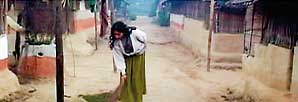 The documentary film ”Killing Time”, focusing on the Bhutanese refugees now living in camps in Nepal, will be shown at an open seminar in Lund on Wednesday 6 February 2008, 15.00–17.00. The film is made by the Swedish-Canadian Director Annika Gustafson, and follows the people who were forced to leave Bhutan after the the Buddhist King of Bhutan in the late 1980s implemented strict cultural laws directly affecting the life and religious freedom of the Hindu population in the south. It includes interviews with Nisha Varia, Asia Specialist, Human Rights Watch, New York; Eve Lester, Refugee Coordinator, Amnesty International, London; Abraham Abraham, Country Director, UNHCR, Nepal; Donna Galwa, Security Officer, UNHCR, Nepal; and Daw Penjo, Bhutanese Ambassador to the UN, New York. The screening of the film, organised by the Centre for East and South-East Asian Studies, Lund University, will be followed by an open discussion about refugees, religion, development aid, exile, war, education, and the Gross National Happiness concept. Venue: Java Hall, Centre for East and South-East Asian Studies, Scheelevägen 15 B, ground floor (next to the Asia Library), Lund. More information.
The documentary film ”Killing Time”, focusing on the Bhutanese refugees now living in camps in Nepal, will be shown at an open seminar in Lund on Wednesday 6 February 2008, 15.00–17.00. The film is made by the Swedish-Canadian Director Annika Gustafson, and follows the people who were forced to leave Bhutan after the the Buddhist King of Bhutan in the late 1980s implemented strict cultural laws directly affecting the life and religious freedom of the Hindu population in the south. It includes interviews with Nisha Varia, Asia Specialist, Human Rights Watch, New York; Eve Lester, Refugee Coordinator, Amnesty International, London; Abraham Abraham, Country Director, UNHCR, Nepal; Donna Galwa, Security Officer, UNHCR, Nepal; and Daw Penjo, Bhutanese Ambassador to the UN, New York. The screening of the film, organised by the Centre for East and South-East Asian Studies, Lund University, will be followed by an open discussion about refugees, religion, development aid, exile, war, education, and the Gross National Happiness concept. Venue: Java Hall, Centre for East and South-East Asian Studies, Scheelevägen 15 B, ground floor (next to the Asia Library), Lund. More information.
• Foreign Minister of Afghanistan lectures in Stockholm
A seminar is held with the Foreign Minister of Afghanistan, Dr. Dadfar Spanta, at Stockholm University on Wednesday 27 February 2008, 13.45–15.00. Dr. Spanta has a background as Associate Professor of Political Science at RWTH Aachen University in Germany, and he will tralk about the future for Afghanistan. The seminar is organised by the Stockholm Association of International Affairs in collaboration with the Swedish Committee for Afghanistan (SCA). Venue: Hörsal A2, Södra husen, Stockholm University, Frescati.
• Stockholm workshop on Gender aspects in ICT4D
A workshop on Gender aspects in ICT4D (Information and Communication Technology for Development) will be held in Stockholm on Thursday 6 March 2008. The workshop is organised by the Swedish Program for ICT in Developing Regions (SPIDER) based at the Royal Institute of Technology (KTH) in Stockholm, in collaboration with with the Centre for Gender Studies/Sida Gender Helpdesk at Stockholm University. The aim of the workshop is to get an overview of (potential) actors and activities in Sweden in the
area of ICT and gender with bearing on development countries issues, and to find areas where ICT
could promote and create equality among women and men.
The workshop will be kept small to allow for vivid discussions. People interested to participate are invited to send a small note on present and future activities and interests to Malin Åkerblom, coordinator of the workshop, before 25 January 2008.
South Asia related culture in Scandinavia
• South Asian films at the 31st Göteborg International Film Festival
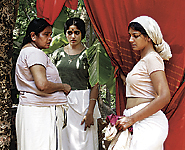 The 31st Göteborg International Film Festival, starting on Friday 25 January
2008 (and lasting till Monday 4 February), will show at least four films connected
to South Asia. Two of them are made by Indian directors, Adoor Gopalakrishnan’s film ”Four Women” (Naalu Pennungal in Malayalee, photo from the film); and Pankaj Rishi Kumar’s independent film ”Punches n Ponytails”, produced with support from the Göteborg International Film Festival Fund. ”Zolykha’s Secret” is a film by the director Horace Shansab from Afghanistan. It deals with life under Taliban rule. Finally a joint Australian/Pakistani film production is shown in Göteborg, ”Donkey in Lahore” directed by Faramarz K-Rabher.
The 31st Göteborg International Film Festival, starting on Friday 25 January
2008 (and lasting till Monday 4 February), will show at least four films connected
to South Asia. Two of them are made by Indian directors, Adoor Gopalakrishnan’s film ”Four Women” (Naalu Pennungal in Malayalee, photo from the film); and Pankaj Rishi Kumar’s independent film ”Punches n Ponytails”, produced with support from the Göteborg International Film Festival Fund. ”Zolykha’s Secret” is a film by the director Horace Shansab from Afghanistan. It deals with life under Taliban rule. Finally a joint Australian/Pakistani film production is shown in Göteborg, ”Donkey in Lahore” directed by Faramarz K-Rabher.
The documentary film ”Killing Time”, made by the Swedish-Canadian Director Annika Gustafson, will also be shown during the festival. The film focuses on the Bhutanese refugees now living in camps in Nepal after the the Buddhist King of Bhutan in the late 1980s implemented strict cultural laws directly affecting the life and religious freedom of the Hindu population in the south. It includes interviews with Nisha Varia, Asia Specialist, Human Rights Watch, New York; Eve Lester, Refugee Coordinator, Amnesty International, London; Abraham Abraham, Country Director, UNHCR, Nepal; Donna Galwa, Security Officer, UNHCR, Nepal; and Daw Penjo, Bhutanese Ambassador to the UN, New York.
More
information on the 2008 Göteborg International Film Festival.
• Hindustani music available from the ITC Sangeet Research Academy web site
 Since 1978 the Indian Tobacco Corporation (ITC Limited) runs the prestigeous ITC Sangeet Research Academy (ITC-SRA), with the objective of preserving and promoting Hindustani Classical Music. ITC-SRA is now also represented on the Internet with an impressive website full of information on ragas. It is possible to download musical samples and listen to them in the ”Music Room” provided for within the website. Go to the ITC-SRA website.
Since 1978 the Indian Tobacco Corporation (ITC Limited) runs the prestigeous ITC Sangeet Research Academy (ITC-SRA), with the objective of preserving and promoting Hindustani Classical Music. ITC-SRA is now also represented on the Internet with an impressive website full of information on ragas. It is possible to download musical samples and listen to them in the ”Music Room” provided for within the website. Go to the ITC-SRA website.
• ASEF announces 6 months internships
at its Cultural Exchange Department in Singapore
 • The Asia-Europe Foundation (ASEF) has issued a Call for 6 months internships
at its Cultural Exchange Department in Singapore. The aim of the work is to promote cultural exchange between countries in Asia (India and Pakistan included) and Europe. ASEF was established in 1997 by members of the Asia-Europe Meeting (ASEM). ASEF seeks to offer a unique environment where artists and cultural professionals from Europe and Asia can meet, exchange ideas and experiences and develop potential future common projects between Asia and Europe. To fulfill its mission, ASEF has developed three programme areas: 1. Young Artists' Exchange: with its yearly series of Asia-Europe Art Camps, Asia-Europe Forums for Young Photographers; Asia-Europe Dance Forums; Asia-Europe Music Camps; and Asia Europe Film Meetings;
2. Process Oriented Platforms and Networks for cinema, museums, and autonomous cultural centres; and
3. Dialogue on Policy and Culture between professionals/artists and policy makers.
The intern wanted will be actively involved on the development of specific projects related to Cultural Exchange, working with different partners and cultural professionals from Europe and Asia. He/she should ideally have a degree in cultural policy or arts management or a proven interest and track record in the field of arts and culture.
Last date for applications: 1 February 2008. More information.
• The Asia-Europe Foundation (ASEF) has issued a Call for 6 months internships
at its Cultural Exchange Department in Singapore. The aim of the work is to promote cultural exchange between countries in Asia (India and Pakistan included) and Europe. ASEF was established in 1997 by members of the Asia-Europe Meeting (ASEM). ASEF seeks to offer a unique environment where artists and cultural professionals from Europe and Asia can meet, exchange ideas and experiences and develop potential future common projects between Asia and Europe. To fulfill its mission, ASEF has developed three programme areas: 1. Young Artists' Exchange: with its yearly series of Asia-Europe Art Camps, Asia-Europe Forums for Young Photographers; Asia-Europe Dance Forums; Asia-Europe Music Camps; and Asia Europe Film Meetings;
2. Process Oriented Platforms and Networks for cinema, museums, and autonomous cultural centres; and
3. Dialogue on Policy and Culture between professionals/artists and policy makers.
The intern wanted will be actively involved on the development of specific projects related to Cultural Exchange, working with different partners and cultural professionals from Europe and Asia. He/she should ideally have a degree in cultural policy or arts management or a proven interest and track record in the field of arts and culture.
Last date for applications: 1 February 2008. More information.
• More information about South Asia related culture
in Sweden and Scandinavia
See SASNET’s page, http://www.sasnet.lu.se/culture.html
New and updated items on SASNET web site
• Swedish departments where research on
South Asia is going on:
Constantly added to the list of research environments at Swedish
universities, presented by SASNET. The full list now includes 220 departments,
with detailed descriptions of the South Asia related research and education
taking place! Go to http://www.sasnet.lu.se/environment.html
ƒ Dept. of Linguistics, Göteborg University
ƒ Dept. of Political Science, Göteborg University
ƒ Dept. of Bacteriology, Swedish Institute for Infectious Disease Control (SMI), Stockholm
• Useful travelling information
Look at http://www.sasnet.lu.se/travelling.html.
Updated travel advises from the The British Foreign & Commonwealth
Office about safety aspects on travelling to the countries of
South Asia.
Best regards,
Anna Lindberg Lars Eklund
SASNET/ Swedish South Asian Studies Network
SASNET is a national network
for research, education, and information about South Asia, based at Lund
University. The aim is to encourage and promote an open and dynamic networking
process, in which Swedish researchers co-operate with researchers in South
Asia and globally.
The network is open to all sciences. Priority is given to co-operation
between disciplines and across faculties, as well as institutions in the
Nordic countries and in South Asia. The basic idea is that South Asian
studies will be most fruitfully pursued in co-operation between researchers,
working in different institutions with a solid base in their mother disciplines.
The network is financed by Sida (Swedish
International Development Cooperation Agency) and by Lund
University.
Postal address: SASNET – Swedish South Asian Studies Network,
Scheelevägen 15 D, SE-223 70 Lund, Sweden
Visiting address: Ideon Research Park, House Alpha 1 (first floor,
room no. 2040 & 2041), in the premises of the Centre for East and South
East Asian Studies at Lund University (ACE).
Phones: + 46 46 222 73 40 and +46 46 222 36 06
Fax: + 46 46 222 30 41
E-mail: sasnet@sasnet.lu.se
Web site:
http://www.sasnet.lu.se
Staff: Anna
Lindberg, director/coordinator & Lars
Eklund, webmaster/deputy director
SASNET - Swedish South Asian Studies Network/Lund
University
Address: Scheelevägen 15 D, SE-223 70 Lund, Sweden
Phone: +46 46 222 73 40
Webmaster: Lars Eklund
Last updated
2011-04-08
